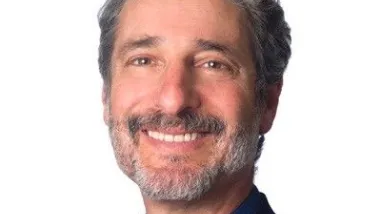By all logic, the comic strip character Dagwood should be fat, sick and impoverished due to his gluttonous eating, sedentary habits, and automobile-dependent lifestyle. Blondie should worry about his high blood pressure and clogged arteries [...]
By all logic, the comic strip character Dagwood should be fat, sick and impoverished due to his gluttonous eating, sedentary habits, and automobile-dependent lifestyle. Blondie should worry about his high blood pressure and clogged arteries, and the Bumsteads should struggle to bear rising automobile expenses. Yet they are all thin, healthy and financially secure, protected from all consequences of indulgent consumerism.
Good literature challenges our assumptions. Comics such as Blondie play it safe by validating rather than questioning conventional values. A fat, sick and impoverished Dagwood could still be funny, while challenging readers' assumptions about what constitutes a normal and desirable lifestyle.
This is a planning issue because conventional comics often portray automobile-dependent suburban development as an ideal, and ignore or ridicule alternatives. Early strips showed Dagwood racing for buses (see image below), but the Bumsteads now live in a sprawled neighborhood, drive everywhere (to be fair, Dagwood carpools to work), shop at malls, never walk or bicycle for transportation, consider public transit the butt of jokes, and chauffeur their children in mini-vans.

This strip from 1948 showed Dagwood and Herb racing for a bus.
Other comic worlds express different values. I particularly appreciate Calvin's Father, who among many positive attributes (a dry sense of humor and a love of the outdoors) was a bicycle enthusiast. Cartoonist Bill Watterson had the good sense to retire the strip rather than let it grow stale, an example that some other cartoonists should follow.

Calvin's Dad was a bicycle enthusiast.
Television seems more progressive. Although many television shows portray suburban families, some of the most popular (e.g., Seinfeld, Friends, Sex In The City, How I Met Your Mother, The Big Bang Theory, etc.) celebrate the pleasures of urban living, including diverse and interesting neighbors, nearby shops and restaurants, and unexpected sidewalk encounters.
Comic and sitcoms reflect the id of society, what Freud described as "the dark, inaccessible part of our personality...filled with energy reaching it from the instincts." A fat, sick and impoverished Dagwood would more accurately reflect the dark soul of modern consumerism.

Planetizen Federal Action Tracker
A weekly monitor of how Trump’s orders and actions are impacting planners and planning in America.

Chicago’s Ghost Rails
Just beneath the surface of the modern city lie the remnants of its expansive early 20th-century streetcar system.

Amtrak Cutting Jobs, Funding to High-Speed Rail
The agency plans to cut 10 percent of its workforce and has confirmed it will not fund new high-speed rail projects.

Ohio Forces Data Centers to Prepay for Power
Utilities are calling on states to hold data center operators responsible for new energy demands to prevent leaving consumers on the hook for their bills.

MARTA CEO Steps Down Amid Citizenship Concerns
MARTA’s board announced Thursday that its chief, who is from Canada, is resigning due to questions about his immigration status.

Silicon Valley ‘Bike Superhighway’ Awarded $14M State Grant
A Caltrans grant brings the 10-mile Central Bikeway project connecting Santa Clara and East San Jose closer to fruition.
Urban Design for Planners 1: Software Tools
This six-course series explores essential urban design concepts using open source software and equips planners with the tools they need to participate fully in the urban design process.
Planning for Universal Design
Learn the tools for implementing Universal Design in planning regulations.
Caltrans
City of Fort Worth
Mpact (founded as Rail~Volution)
City of Camden Redevelopment Agency
City of Astoria
City of Portland
City of Laramie




























